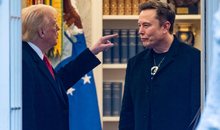
 Flash News
Flash News
VIDEO/ Gang fight in Greece revealed, 12 arrested, including Albanians
He lived on money with usury and threatened people, the deputy commissioner in Elbasan was arrested (NAME)
NAME/ Drugs and illegal weapons, young man arrested in Durrës, accomplice under investigation
Fire alarm in the country, 6 fires still active, what is the situation so far?
Convicted in Switzerland for drug trafficking, arrested in Qafë Thanë Macedonian (EMRI)
Vietnam and the US sign a customs agreement
Eksportet në SHBA janë shumë të rëndësishme për ekonominë vietnameze. Kjo është ndoshta arsyeja pse vendi aziatik ka rënë dakord për një marrëveshje tarifore. Megjithatë, në Hanoi nuk ka optimizëm.
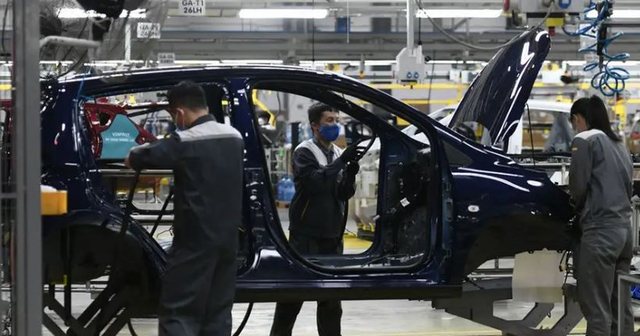
Exports to the US are crucial to the Vietnamese economy. That is perhaps why the Asian country has agreed to a tariff deal. However, there is no optimism in Hanoi.
The CNBC presenter looks visibly excited: according to her, this is the most important and surprising news of the day: "The US president has announced that an agreement has been reached with Vietnam: 20% tariffs will be applied to Vietnamese imports to the US."
The Southeast Asian country is thus one of the first to reach an agreement in the tariff dispute with the US. President Donald Trump had initially threatened much higher tariffs, specifically 46%. In exchange, Vietnam has agreed to eliminate all tariffs on American imports into the country, according to US Deputy Secretary of the Treasury, Michael Faulkender: "This is a huge success for Americans, for farmers. We have opened the Vietnamese market like never before."
Some 14,000 kilometers from Washington, Peter Kompalla is in his office in Ho Chi Minh City, Vietnam. He is the so-called "delegate of German business in Vietnam" for the German Chamber of Foreign Trade (AHK). According to him, there is no great euphoria in Vietnam after the announcement of the agreement.
"And that surprised me; it's not even the main topic in the media." The government issued a fairly objective statement. "Positive and objective," according to Kompalla. The Vietnamese side is pleased with the result because there is clarity. "But there is no celebration here."
Dependence on exports to the US
This at a time when Vietnam is heavily dependent on the US: about 30% of its gross domestic product last year came from exports to the US. Textiles, footwear and furniture are the most important export products and millions of Vietnamese workers are employed in these sectors.
Many international companies such as Samsung, Adidas and Nike, as well as Chinese companies, shifted a large part of their production to Vietnam during Trump's first term to avoid US tariffs on China.
Many details of the agreement are still unclear.
According to Peter Kompalas of the German Chamber of Commerce in Vietnam, the details of the actual agreement are yet to be seen. Trump also announced that a 40% tariff will be applied to freight products - that is, products from third countries, such as China, that arrive in the US via Vietnam.
"And that's the big question: how exactly is this technically defined? How is it defined? What is freight now and what are the products that are actually manufactured here?" Because Vietnam is a trading country and relies on imports, including from China.
Very few companies operating globally have 100% of their production in Vietnam, including pre-products, full processing and all other services. Therefore, companies now face the question: will their products be subject to a 40% tariff when exported to the US because, for example, some parts come from China?
Resistance expected from China
For Shawn Donnan, an economics expert at Bloomberg News, the interesting question is: how will China react? On the podcast of the American business news agency, he said: "We could soon see agreements with countries like Thailand, Indonesia, Japan or South Korea." According to Donnan, their contracts could include similar provisions specifically aimed at China. "This would further isolate the Chinese economy. It would hurt the Chinese people. So China will resist."
The coming weeks will reveal who is right. Faulkender, the US deputy treasury secretary, told CNBC that he expects a series of tariff agreements with other countries no later than next week./ DW
Latest news


Turkey increases political influence in the Western Balkans
2025-07-06 15:48:14
Dalai Lama turns 90 amid global adoration
2025-07-06 15:27:46
Tax for singles or those who do not leave
2025-07-06 15:04:00
Earth farther from the Sun, but scorching heat! Why is this happening?
2025-07-06 14:51:26
Fire at the Incinerator/ Gjokutaj Ironizes: PS should name the city Qelbasan!
2025-07-06 14:35:10
The youth exodus and Rama's political carnivals!
2025-07-06 14:16:04
VIDEO/ Gang fight in Greece revealed, 12 arrested, including Albanians
2025-07-06 13:47:52

Albania in fire, Rama at sea (VIDEO)
2025-07-06 13:04:45
New tactic revealed! France uses "Jet Ski" to stop migrants heading to Britain
2025-07-06 12:41:13
Balluku is becoming "Veliaj 2"
2025-07-06 12:16:11




Why shouldn't we take cold showers during a heat wave?
2025-07-06 10:39:16
Fire alarm in the country, 6 fires still active, what is the situation so far?
2025-07-06 10:10:04
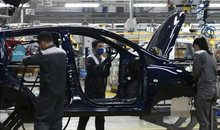
Vietnam and the US sign a customs agreement
2025-07-06 09:39:42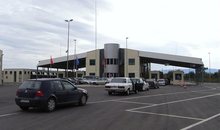

2-year-old girl drowns in family pool in Kosovo
2025-07-06 09:11:18
Albania, as a migration laboratory
2025-07-06 08:54:18
Today's horoscope, what the stars have predicted for each sign
2025-07-06 08:37:51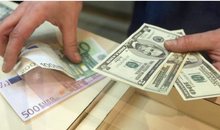

Temperatures up to 40 degrees! Weather forecast for today
2025-07-06 08:00:35
Morning Post/ In 2 lines: What mattered yesterday in Albania
2025-07-06 07:45:21
When 90 minutes awaken decades of history: Albania – Serbia, beyond football
2025-07-05 21:51:55
Not only the body, swimming also helps the brain
2025-07-05 21:02:49
"Be careful with the water", Alimehmeti warns about the health risks of summer
2025-07-05 20:39:10
PSG beats Bayern Munich 2-0, advances to Club World Cup semifinals
2025-07-05 20:19:38

Two vehicles collide on the Elbasan-Peqin axis, drivers injured
2025-07-05 19:26:29

What does Zelenskyy have more than Zegjineja?
2025-07-05 18:45:26

Fiscal peace, but at a cost
2025-07-05 18:00:10
'Bankers' tax evasion, Chinese CEO and former director jailed
2025-07-05 17:39:21
Kyle Walker joins English club on two-year deal
2025-07-05 17:20:24
Two cars collide on the Saranda-Delvina axis, 4 injured
2025-07-05 17:05:29
Touching gesture! Liverpool will pay Jota's family's salary until 2027
2025-07-05 16:45:18
The zodiac signs that cheat most often
2025-07-05 16:25:53

"I asked for the dismissals", Dredha tries to soften Rama's 'blow' in Vlora
2025-07-05 15:48:49
Bomb threat in Parliament, prosecutor: It was a lie
2025-07-05 15:22:28

Bardhi: The recount revealed how greedy Zeqine Balluku is in stealing
2025-07-05 14:44:29
Knife wound on the secondary road Tirana-Durrës, perpetrator sought
2025-07-05 14:37:54
Tears and pain, Diogo Jota is escorted to his final home
2025-07-05 14:21:34
Success starts with yourself! Simple ways to invest in personal development
2025-07-05 13:58:50
Unlicensed firearms found in apartment, 50-year-old arrested in Lushnje
2025-07-05 13:43:11

Tirana Court remands Skerdi Sina to prison
2025-07-05 12:59:34
Cocaine laboratory in Greece, here are the Albanians arrested and wanted
2025-07-05 12:40:16
Directed Justice/Vangjeli: SPAK does not investigate any scandal involving Rama
2025-07-05 12:22:03

Bomb alert, Police remove MPs and media from Kosovo Parliament building
2025-07-05 11:48:16
"The will of the people" and the irony of ordered resignations
2025-07-05 11:32:05
Summer drowning risk: How to enjoy the water without risking your life
2025-07-05 11:20:27
Fire situation in the country, 16 fires reported in 24 hours, 4 still active
2025-07-05 11:07:04
Car hits pedestrian at white lines, injured in serious condition in Vlora
2025-07-05 10:59:58
Mosquito-borne diseases are a growing problem in Europe
2025-07-05 10:44:13



One of Sweden's most dangerous and wanted criminals arrested in Turkey
2025-07-05 09:38:29
Foreign exchange/ How much foreign currencies are bought and sold today
2025-07-05 09:18:38

"Don't be influenced by the opinions of others", today's horoscope
2025-07-05 08:40:50

Morning Post/ In 2 lines: What mattered yesterday in Albania
2025-07-05 08:02:07

Trump says he's ready to raise tariffs to 70% on some countries
2025-07-04 22:35:52
Tre shenjat e zodiakut që do ‘pasurohen’ në Korrik
2025-07-04 22:05:09
Gaza War: Hamas Accepts US Proposal for 60-Day Ceasefire
2025-07-04 21:50:10
Autocracy in Albania, Fuga: Governance has gotten out of control
2025-07-04 21:40:51
Meta: Agriculture on credit, the new fraud!
2025-07-04 21:26:39




Vote recount in Durrës ends without changes
2025-07-04 20:12:54
Gas station explodes in Rome, 25 injured (VIDEO)
2025-07-04 20:00:20

These afternoon habits often sabotage weight loss
2025-07-04 19:39:28
Former Arsenal player Thomas Partey accused of rape
2025-07-04 19:24:21
Shepherd disappears without a trace in Delvina
2025-07-04 19:14:31

Bardho gave Zegjine's mandate/Braho: Unfair! It violates the electoral system
2025-07-04 19:01:08


Rapid developments in the Sultanates!
2025-07-04 18:00:06



Italy tightens rules for skateboard traffic
2025-07-04 17:20:18

Unusual for the time, dense fog covers the coast of Vlora
2025-07-04 16:48:01

